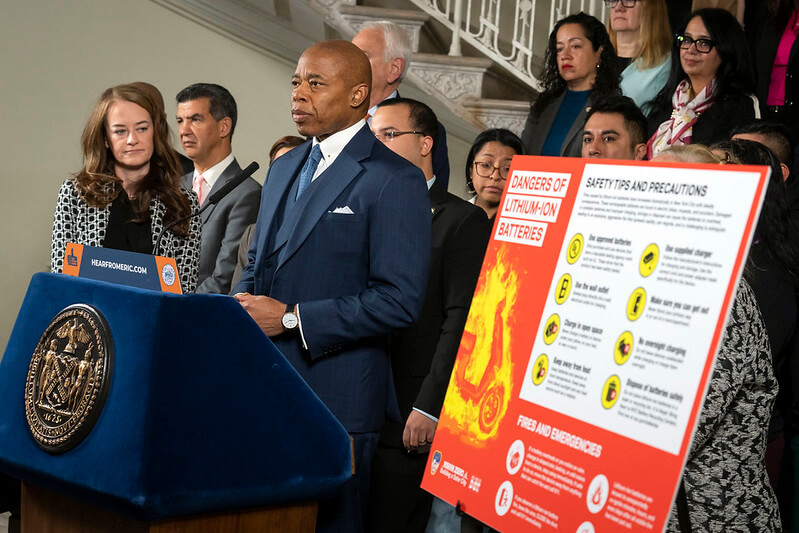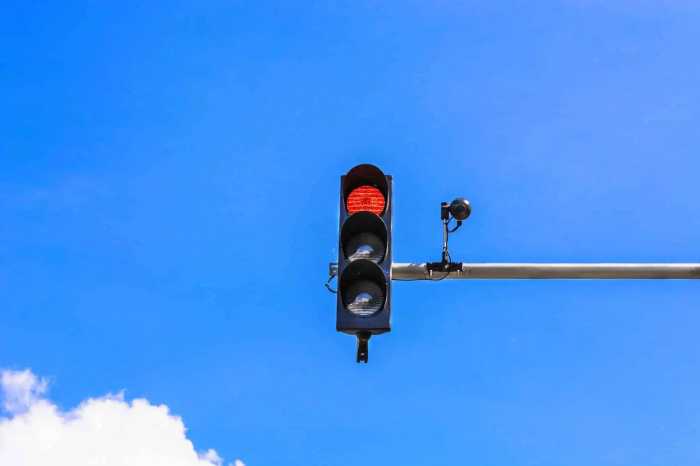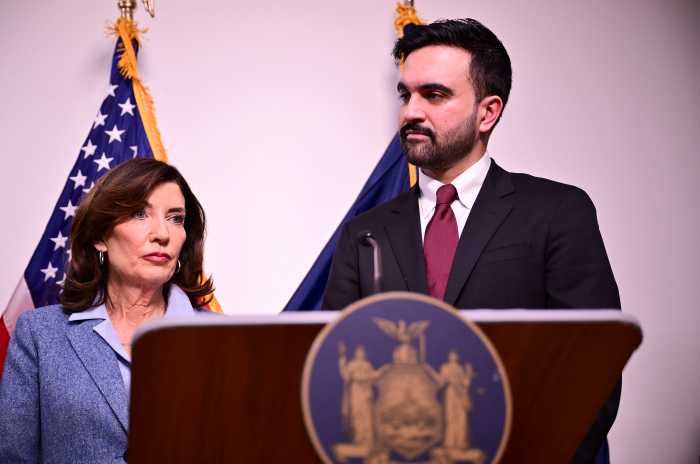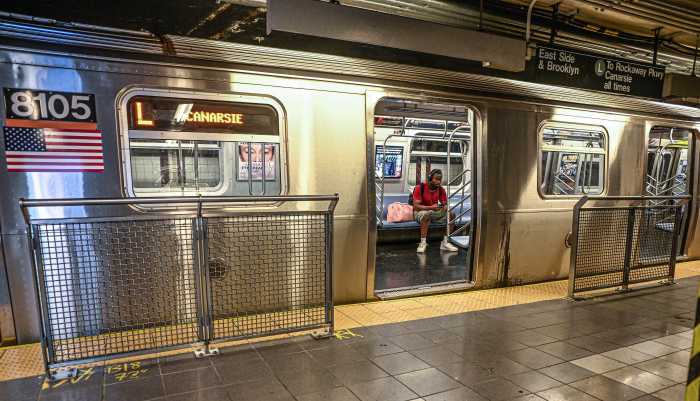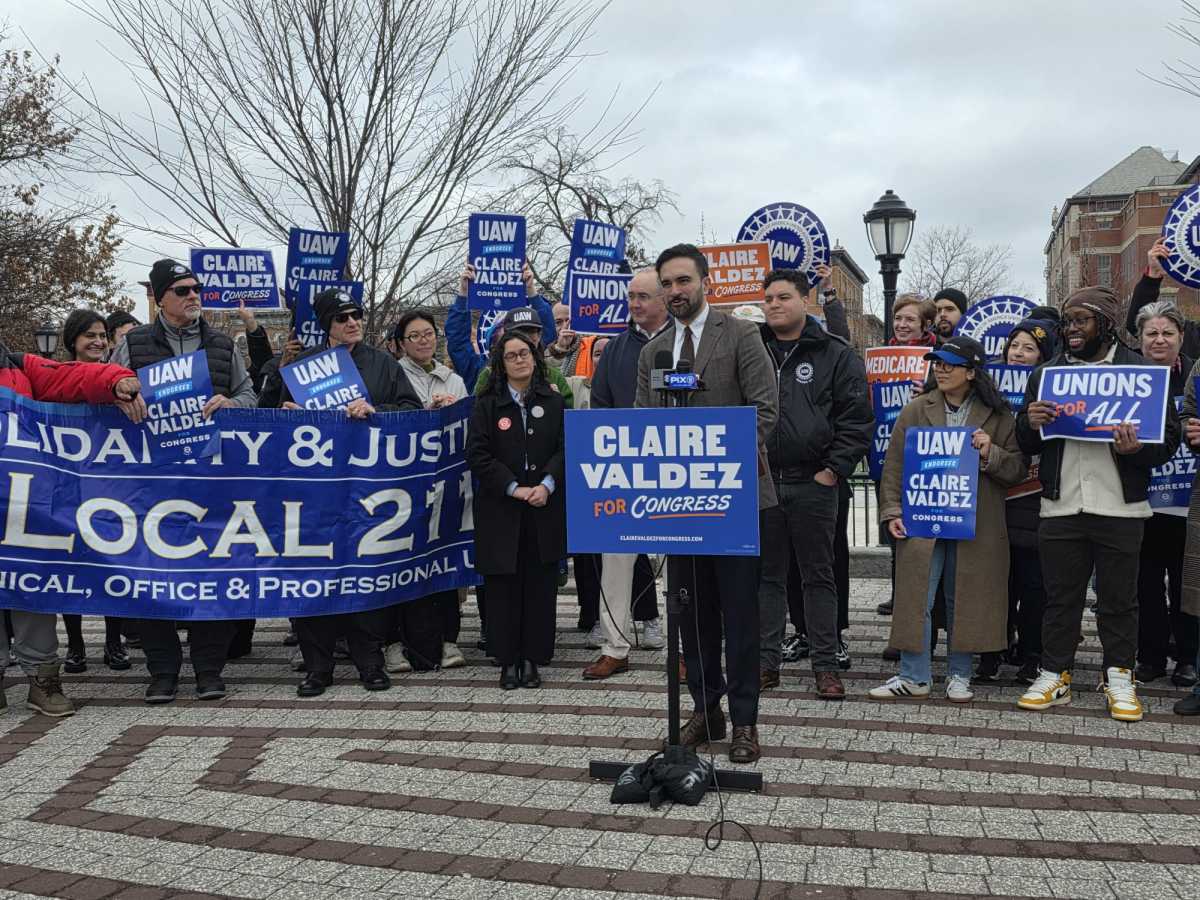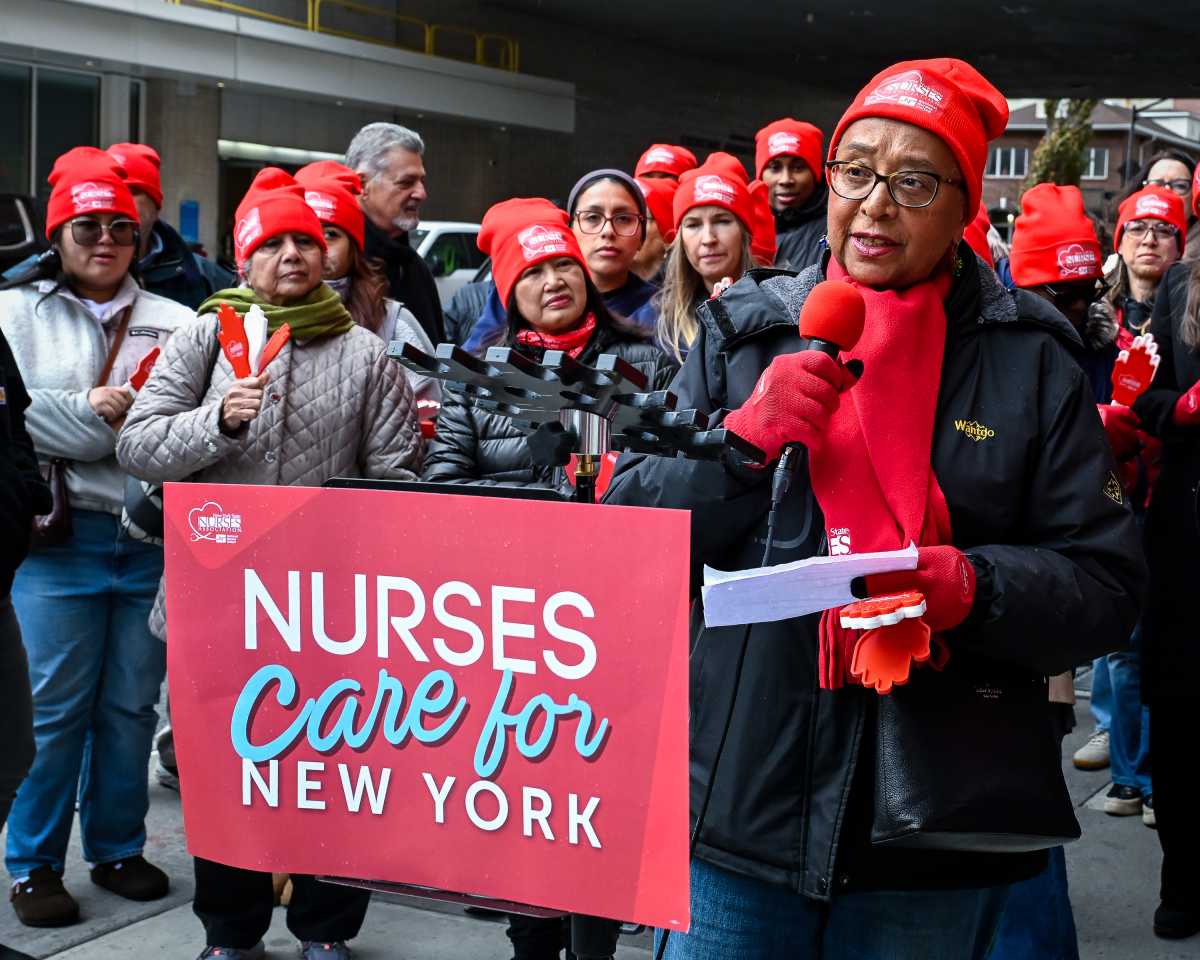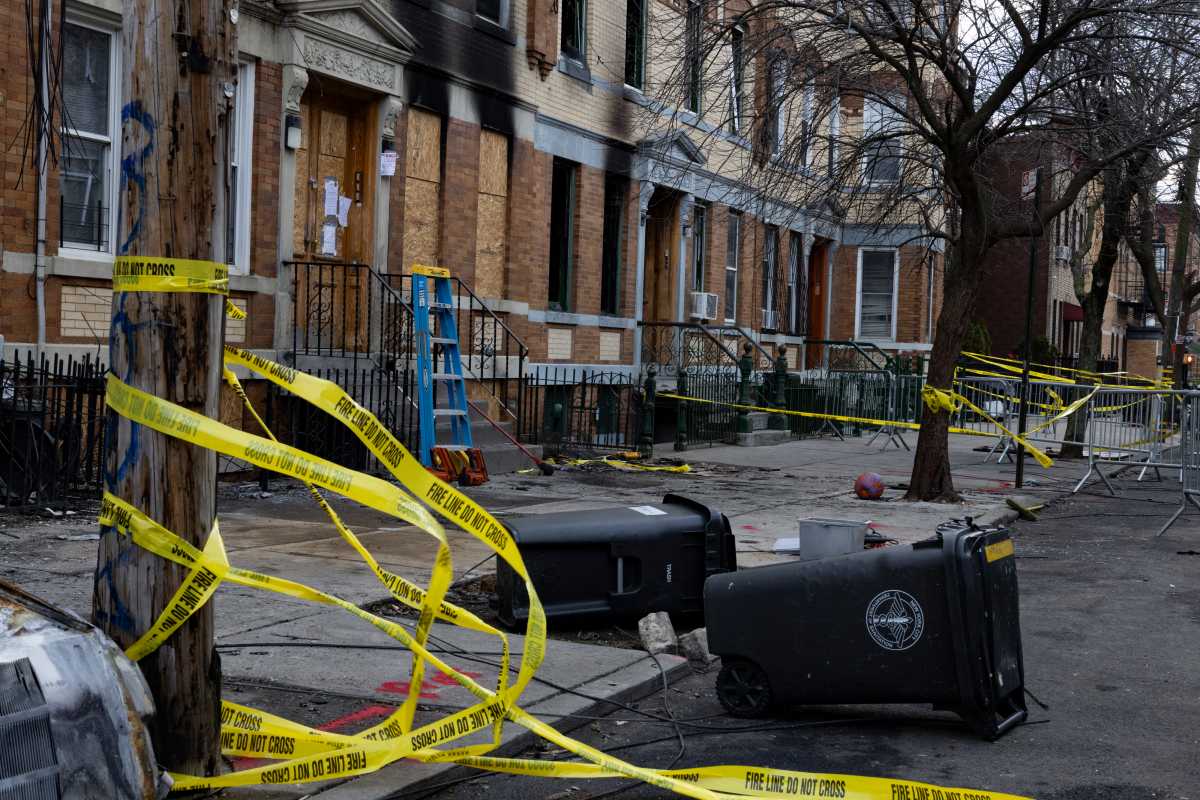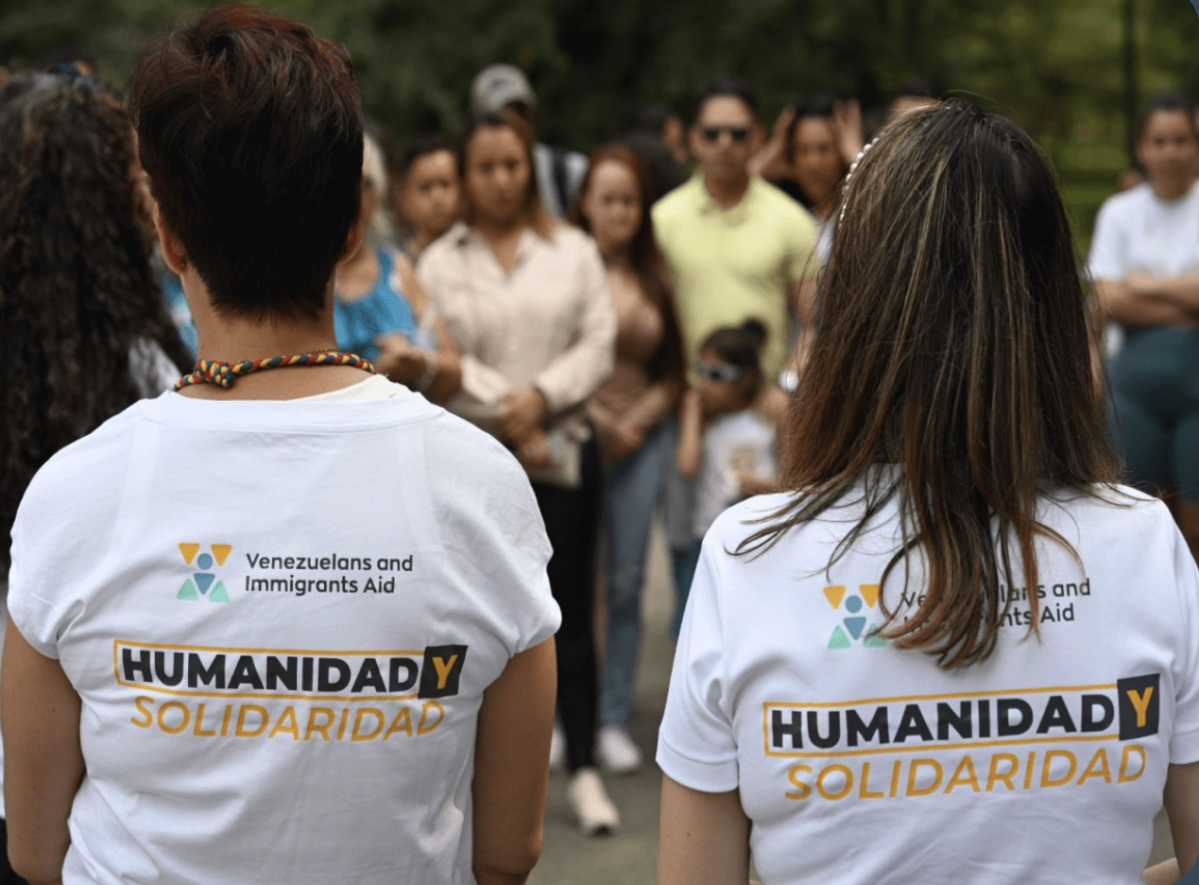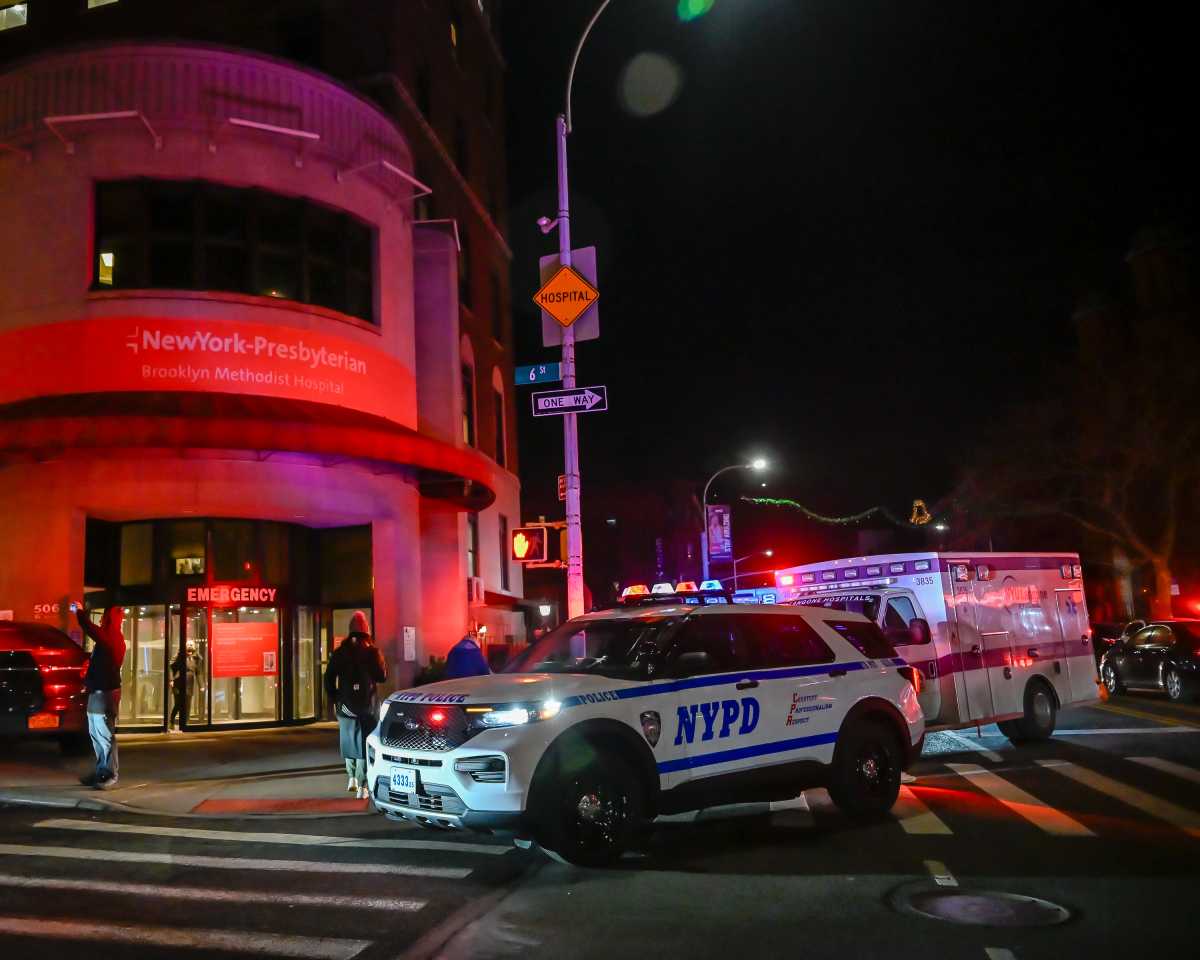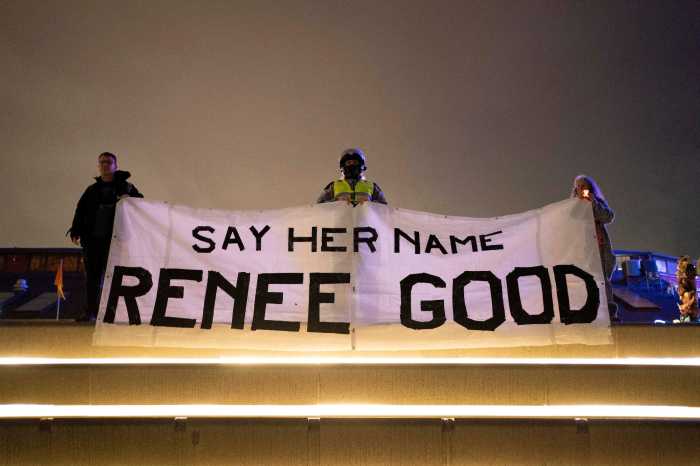While signing five bills designed to combat an ongoing scourge of fires linked to faulty batteries found in e-bikes and e-scooters, used by most delivery workers, Mayor Eric Adams on Monday released his own plan to combat the blazes.
During a news conference at City Hall on Monday morning, the mayor remarked on just how dangerous these battery-associated fires can be, as they spread faster than other fires and are harder to extinguish.
“They’re not just regular fires, they’re basically explosions and they spread so rapidly,” Adams said. “They spread so rapidly, and it [takes] more than just water to put them out. It’s a very complicated fire.”
The battery-linked infernos doubled between 2021 and 2022 — rising from 104 to 216 fires in one year — with injuries also doubling, and six people dying last year. They’ve already caused two deaths and 40 injuries in the first two months of this year, according to the mayor’s office.
The most notable Adam signed, which passed the council earlier this month, would ban the sale, lease or rental of e-bike and e-scooter batteries that fail to meet industry safety standards — chiefly standard 2771 established by Underwriters Laboratories.
The mayor also signed legislation requiring the FDNY and the city Department of Consumer and Worker Protection (DCWP) to develop a public information campaign on e-bike and scooter battery safety, directing both agencies to provide materials on the safe storage of the batteries and for FDNY to annually report on fires connected to the power cells.
“We need to make sure that products sold in our city are safe for New Yorkers,” said Council Member Oswald Feliz (D-Bronx), who sponsored the bill banning the sale of unregulated batteries and whose district was home to the massive Twin Parks fire that killed 17 people last year.
“We were proud to work on a very thorough package of fire safety legislation, including legislation that will require that these batteries be certified in order to be sold,” he added. “Requiring these batteries go through fire safety checks, to make sure that they have tools that prevent overheating, overcharging and other things that we’ve seen cause fires.”
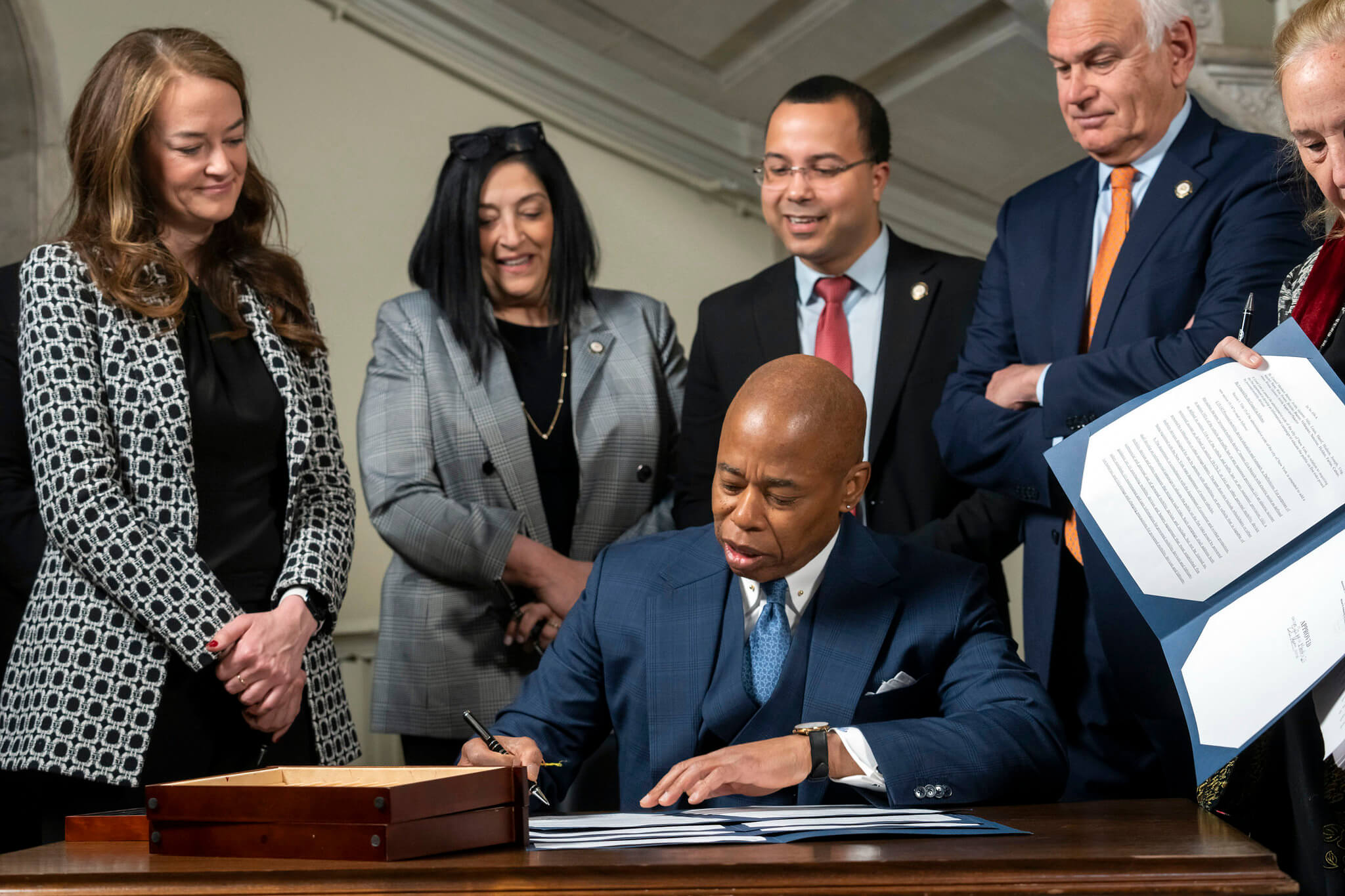
The mayor’s plan — billed “Charge Safe, Ride Safe: New York City’s Electric Micromobility Action Plan” — includes measures intended to transition e-bike and e-scooter users to safe batteries, educate them on faulty devices and step up enforcement against fire code violators.
“This is a comprehensive plan,” the mayor said. “It has been developed across the whole of government with input from every level of government so we can get this right. Workers deserve access to safe devices and batteries.”
The plan aims to build on efforts the city has already undertaken to combat battery fires, such as a pilot program for e-bike charging stations in New York City Housing Authority (NYCHA) developments — where many delivery workers reside — and constructing delivery-worker hubs in high-traffic areas.
The pilot program, a partnership between NYCHA and Con Edison that’s already underway, aims to install charging stations and outdoor storage for e-bikes and e-scooters at four public housing developments, which is designed to reduce the risk of fires spreading in buildings. NYCHA is also applying for a $25 million federal grant to expand the program to install 173 charging and storage stations at 53 public housing developments across the five boroughs, according to the plan.
The plan would also refine pieces of legislation — currently being considered by the City Council — to establish a faulty battery buy-back program and safe storage for charging the devices overnight, which amNewYork Metro reported on earlier this month. Implementing a buy-back program tailored for New York City is essential, the plan notes, and will require state or federal funding in order to purchase the expensive certified batteries — that can cost up to $1,000.
The mayor’s scheme also introduces new measures like an FDNY fire marshal task force that will use data to identify potential violators of the city’s fire code and “high-risk” situations. Those violators would then be contacted by the city and could be subject to inspection.
The administration is also lobbying the U.S. Consumer Product Safety Commission (CPSC) to better regulate unlicensed batteries. That’s an effort FDNY Commissioner, Laura Kavanagh, said the administration has already seen some success with, after she sent two letters to the agency.
“We sent them two letters and in both cases they took action following [those] letters,” Kavanagh said. “In one case, it was a recall of some devices that were online. And [in] another case, it was actually looking at the ports and whether or not they could seize certain devices at the ports. So they’ve been very responsive.”
Read more: NYC Proposal for Free Buses to Improve MTA Service



